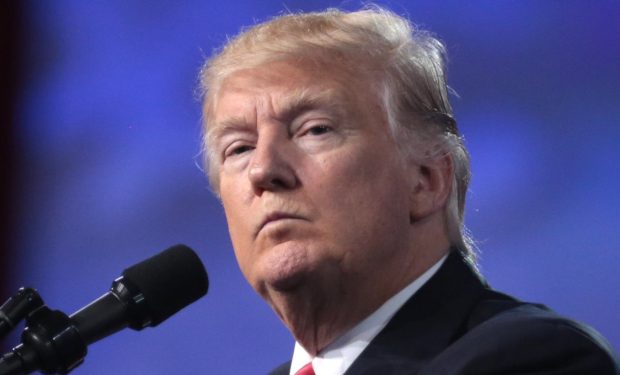Former U.S. Attorney Says Trump Is Bluffing On Cameras
Former President Donald Trump filed a late night motion supporting the idea that cameras be allowed into the courtroom for his federal documents trial, currently scheduled for March in Florida. (Federal courts generally prohibit cameras to protect defendants.)
The Trump legal team asserts that “the prosecution has sought to proceed in secret” and saying that, without cameras, “the prosecution wishes to continue this travesty in darkness.”
Citing the need for “sunlight,” Trump’s team is asking the judge for the trial to be televised, something every TV network also wants.
Despite the filing, former U.S. Attorney Joyce Vance believes Trump is bluffing.
“Trump does not really want cameras in the courtroom,” Vance writes. “They would expose the truth and expose him for what he truly is.”
Putting aside the fact that Trump has been increasingly transparent about “what he truly is” — and has only risen in the polls, it seems implausible to state that Donald Trump, of all people, does not really want cameras.
The businessman-turned-showbiz-sensation-turned-politician has used the camera lens as effectively as anyone in recent history.
Indeed, in predicting that Trump would soon be lured to the GOP debate stage, Republican rival and Trump antagonist Chris Christie said that, for Trump, cameras are irresistible.
Trump will “eventually show up on the debate stage,” Christie said, “because he knows that his most effective moments are when he’s on television — when he’s on camera, looking into the camera, being able to make his case.”
Yet Vance is not ignoring Trump’s history — she is trying to illustrate something about his potential future. Federal Judges, even those who seem as Trump-friendly as Judge Cannon in Florida, are not Fox News or CNN debate moderators. They are not Piers Morgan or Sean Hannity or Tucker Carlson — or even Kristen Welker.
And if cameras are allowed in Cannon’s court, it is likely to be a rule change that affects the other federal courtrooms where Trump stands trial — presided over by judges Trump didn’t appoint to the bench.
The rules of engagement in courtrooms are utterly different than the rules under which Trump usually works the camera. Vance writes that in court the “facts are the facts and the evidence is the evidence.”
On Meet The Press, that is, no matter how earnest the fact-checking, the final product is a narrative driven by the subject of the interview — Trump himself. In the courtroom, unlike on television, lies are called perjury.
(With this is the associated assertion that Welker, talented as she is, carries a less powerful tool set to the soundstage than the one Special Counsel Jack Smith brings to the courtroom.)
So why, if Vance is right, does Trump’s team want cameras — if the former President doesn’t “really” want them? One answer might be hubris — cameras, after all, have served Trump exceedingly well.
The other reason, which Vance asserts, is that Trump hopes his filing will be denied, a denial he can then excoriate as cowardice and malfeasance by the government — an effort to keep the proceedings — and his self-alleged political persecution — “in darkness.”
If Vance is right, Trump is in a “careful what you wish for” scenario: cameras could help convict him. If she’s wrong, look for Trump to try to win the case on camera and notch the Emmy he has long lamented “unfairly” eluded him.
